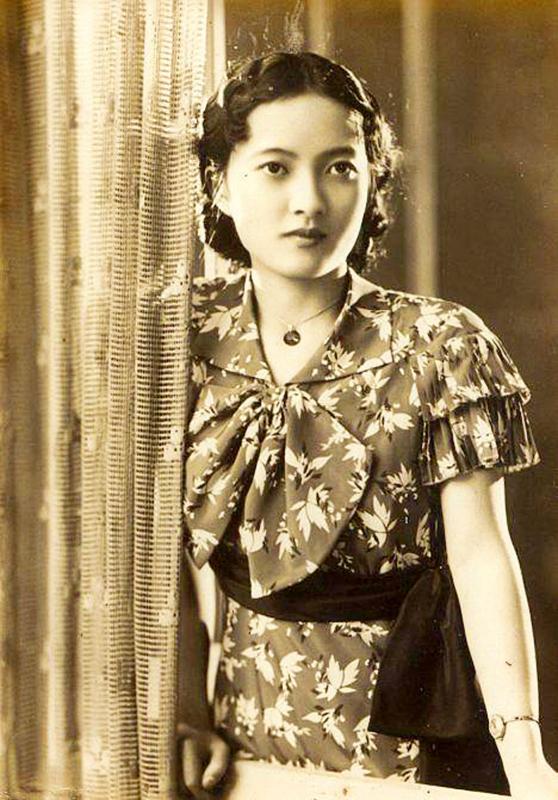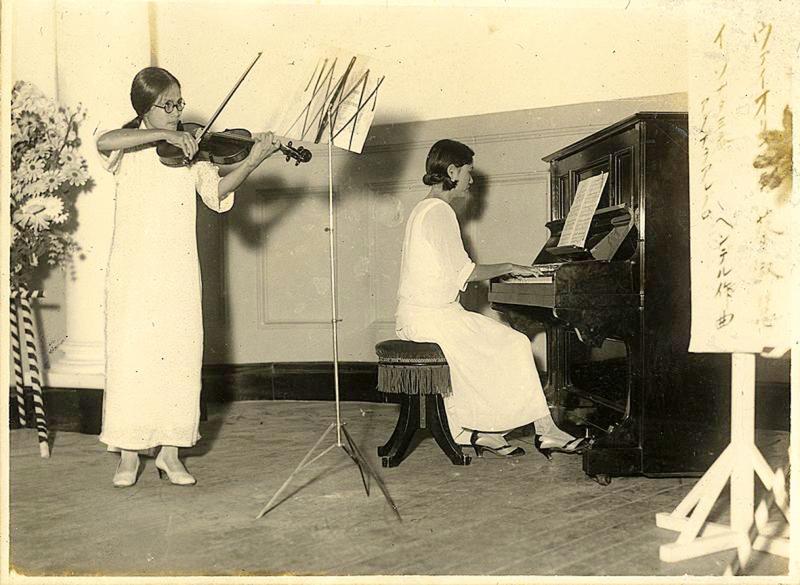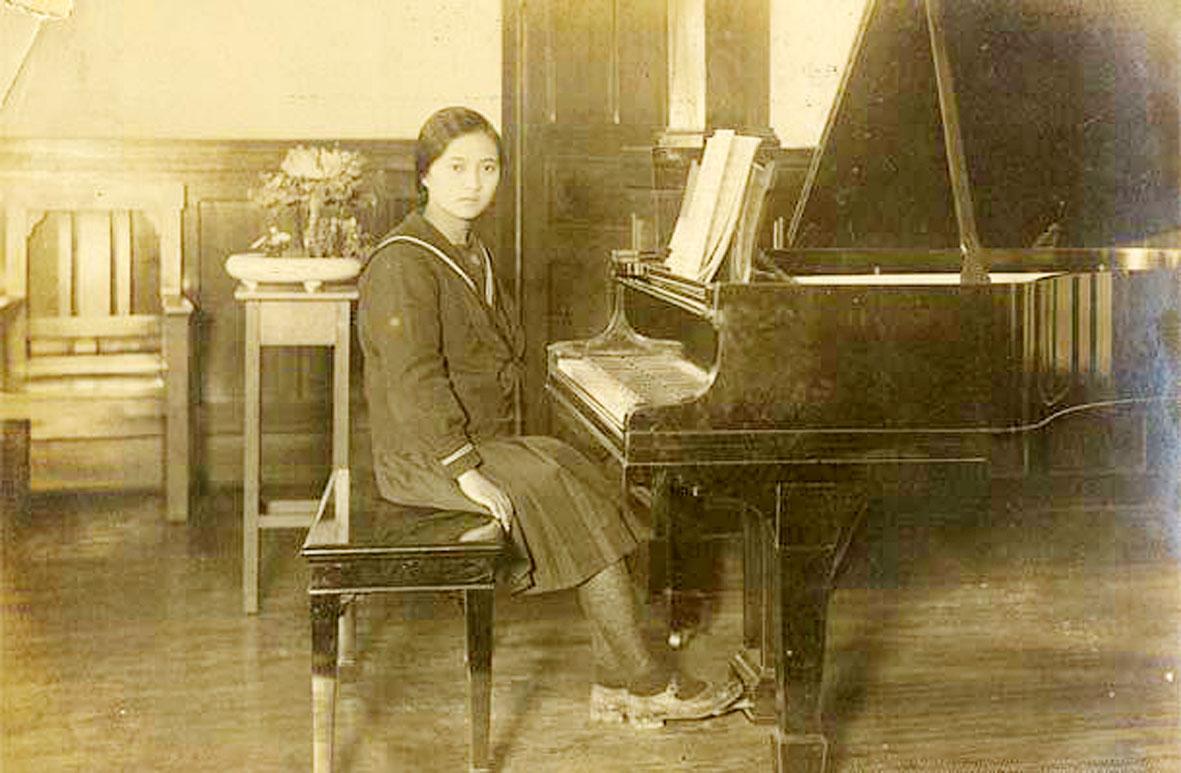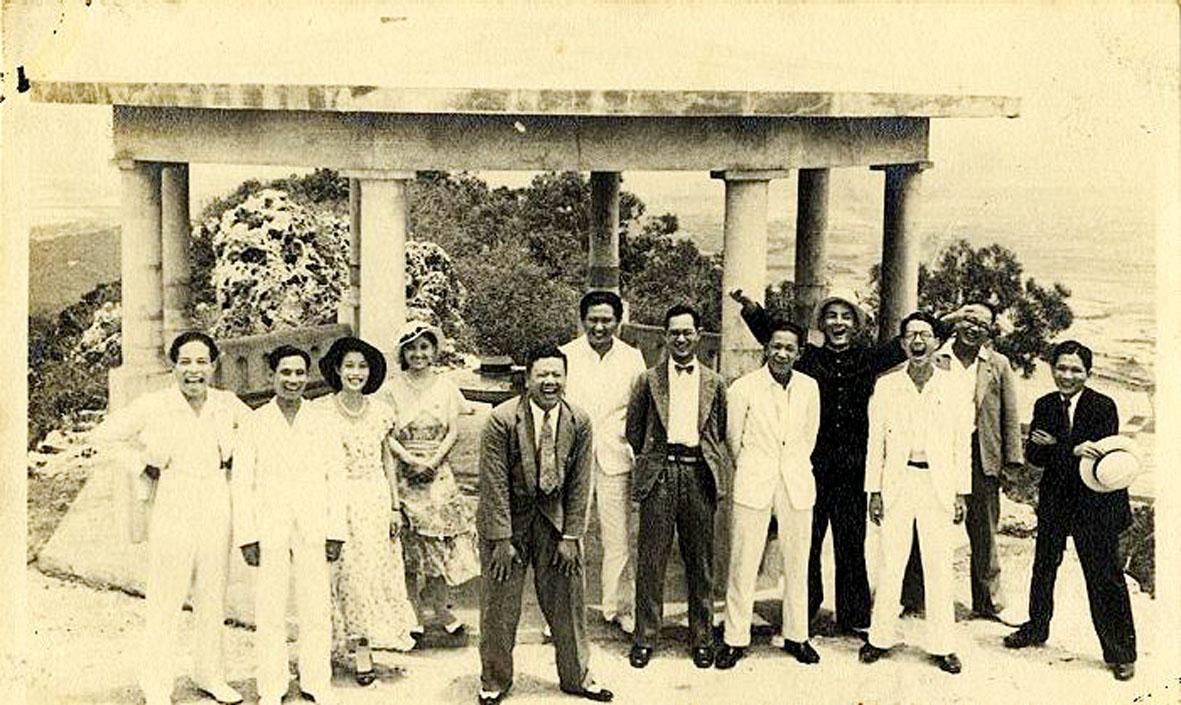Feb. 14 to FEB. 20
The first time pianist Kao Tzu-mei (高慈美) toured Taiwan, it was a cheerful occasion. In August 1934, Kao and other music students in Japan returned home and put on seven dazzling performances of Western music along the west coast to great fanfare.
But disaster struck the next year. In April 1935, the 7.1-magnitude Hsinchu-Taichung Earthquake left more than 3,000 dead, 11,000 wounded and the surrounding area and infrastructure heavily damaged.

Photo courtesy of Wikimedia Commons
Tsai Pei-huo (蔡培火), president of the Taiwan New Minpao (台灣新民報) newspaper, organized a series of charity concerts to help the victims and the rebuilding effort. Kao, 21, was one of several women in the ensemble, as well as one of four musicians to appear in all 37 shows during the seven-week tour.
Historian Chuang Yung-ming (莊永明) writes that Kao’s first tour only covered the west coast, but the second one went deep into the countryside, even hitting then-remote Taitung.
Kao married soon after and only taught private students while balancing domestic duties, but she began teaching in universities in 1948. She was promoted in August 1970 and became the nation’s first female professor of piano.

Photo courtesy of Wikimedia Commons
EARLY DIARIES
Kao was born on Feb. 17, 1914 to a prestigious family in today’s Gangshan (岡山) District in Kaohsiung. Her grandfather Kao Chang (高長) was the Presbyterian Church in Taiwan’s first convert and a local preacher; her father was a doctor and her mother the daughter of a doctor. Kao Tzu-mei was privileged enough to attend preschool in Japan, only returning home after the Great Kanto Earthquake of 1923.
Kao returned to Japan to further her studies in 1927, and after finishing high school, she enrolled in the Toyo Conservatory of Music (today’s Tokyo College of Music), studying under renowned pianist Koukichi Oida.

Photo courtesy of Wikimedia Commons
Kao kept a detailed diary between 1929 and 1932, which was published in four volumes in Japan; unfortunately there is no Chinese translation available. In addition to describing her studies and social life, she also mused about the condition of Taiwanese and how it felt to meet her compatriots in Japan.
The diary took a more reflective tone after she moved to Tokyo: “While undergoing rigorous musical training, Kao’s awareness of herself and as a musician grew,” writes researcher Lee Yi-ling (李依陵) in an Academia Sinica document. In the diary’s final year, she became engaged to Lee Chao-jan (李超然), great-grandson of the famed Dadaocheng tea merchant and philosopher Lee Chun-sheng (李春生). The marriage took place in 1937, uniting the two major Presbyterian families on both ends of the island.
“One could feel her uncertainty and hesitation about the future as an 18-year old who was still in school but also set to get married, as well as her confusion and desire toward freedom while caught between tradition and being a modern woman.”

Photo courtesy of Wikimedia Commons
EAGER TO HELP
In June 1934, the Taiwanese Association (台灣同鄉會) was formed in Tokyo. During the founding ceremony, political activist Yang Chao-chia (楊肇嘉) suggested that the music students go on tour of Taiwan. Chuang writes that it was the nation’s first Western music concert series.
In addition to Kao, the talented roster included future greats such as vocalist Lin Chiu-chin (林秋錦) and composers Chen Su-ti (陳泗治) and Chiang Wen-ye (江文也). Yang recalls in his memoir that it was a “valuable historic occasion that contributed to the artistic development of Taiwanese society.”
Kao briefly put her musical career on hold after her marriage, but eventually she began teaching and performing again, even returning to Japan to refine her techniques under a German professor in 1939.
In 1948, Tai Tsui-lun (戴粹倫), head of the music department at today’s National Taiwan Normal University, invited Kao to teach there. She also began teaching at today’s Fu Hsing Kang College in 1953.
Kao was active in high society; her husband founded the Taipei West District Rotary Club and they rubbed elbows with the nation’s elite as well as foreign dignitaries. She was reportedly an enthusiastic matchmaker.
Kao was known for her generosity toward less fortunate students, often helping out with their tuition and supporting them after they graduated and started teaching. The renowned music scholar Hsu Chang-hui (許常惠) was able to study abroad in France due to a scholarship provided by Kao and her friends.
She remained active after retiring in 1984, participating in Rotary Club activities and joining the Taipei Jen-Chi Relief Institution (仁濟院) as a director at the age of 80.
Kao died in 2004 and is remembered by her friends and family, as well as the National Taiwan Museum of History’s “Taiwanese Women” Web site — as the “blessed pianist,” as few women those days could enjoy both a vibrant private and public life in addition to a respected career.
Taiwan in Time, a column about Taiwan’s history that is published every Sunday, spotlights important or interesting events around the nation that either have anniversaries this week or are tied to current events.

Last week saw the appearance of another odious screed full of lies from the People’s Republic of China (PRC) Ambassador to Australia, Xiao Qian (肖千), in the Financial Review, a major Australian paper. Xiao’s piece was presented without challenge or caveat. His “Seven truths on why Taiwan always will be China’s” presented a “greatest hits” of the litany of PRC falsehoods. This includes: Taiwan’s indigenous peoples were descended from the people of China 30,000 years ago; a “Chinese” imperial government administrated Taiwan in the 14th century; Koxinga, also known as Cheng Cheng-kung (鄭成功), “recovered” Taiwan for China; the Qing owned

In Taiwan’s politics the party chair is an extremely influential position. Typically this person is the presumed presidential candidate or serving president. In the last presidential election, two of the three candidates were also leaders of their party. Only one party chair race had been planned for this year, but with the Jan. 1 resignation by the currently indicted Ko Wen-je (柯文哲) of the Taiwan People’s Party (TPP) two parties are now in play. If a challenger to acting Chairman Huang Kuo-chang (黃國昌) appears we will examine that race in more depth. Currently their election is set for Feb. 15. EXTREMELY

Jan. 20 to Jan. 26 Taipei was in a jubilant, patriotic mood on the morning of Jan. 25, 1954. Flags hung outside shops and residences, people chanted anti-communist slogans and rousing music blared from loudspeakers. The occasion was the arrival of about 14,000 Chinese prisoners from the Korean War, who had elected to head to Taiwan instead of being repatriated to China. The majority landed in Keelung over three days and were paraded through the capital to great fanfare. Air Force planes dropped colorful flyers, one of which read, “You’re back, you’re finally back. You finally overcame the evil communist bandits and

They increasingly own everything from access to space to how we get news on Earth and now outgoing President Joe Biden warns America’s new breed of Donald Trump-allied oligarchs could gobble up US democracy itself. Biden used his farewell speech to the nation to deliver a shockingly dark message: that a nation which has always revered its entrepreneurs may now be at their mercy. “An oligarchy is taking shape in America of extreme wealth, power and influence that literally threatens our entire democracy, our basic rights and freedoms,” Biden said. He named no names, but his targets were clear: men like Elon Musk